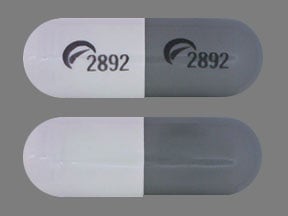
Duloxetine Coupons & Savings Card – Discount Prices from $5.97
Generic for: Cymbalta, Drizalma sprinkle
My prescription
Edit
60MG, Duloxetine (30 Capsule Delayed Release Particles)
Select pharmacy

CVS
$20.05
COUPON PRICE
Walmart
$5.97
COUPON PRICE
Walgreens
$11.91
COUPON PRICE
Albertsons
$14.07
COUPON PRICEDuloxetine savings card
Show this card to your pharmacist
Walmart
$5.97
BIN
ID
PCN
GRP
019876
LHB943F85B
CHIPPO
LHX
Powered by
More prescriptions for musculoskeletal conditions
More prescriptions for musculoskeletal conditions
Price history for Drizalma Sprinkle (brand) & Duloxetine (generic)
30 Capsule Delayed Release Particles, 60MG
Average retail price for Drizalma Sprinkle
Average retail price for Duloxetine
Average SaveHealth price for Duloxetine
Our price history data is based on aggregated prescription data collected from participating pharmacies in America. Our prescription data updates daily to reflect the latest price changes. If you notice a missing data point, it means there wasn't sufficient data available to generate a monetary value for that date.
We analyzed Duloxetine prices for (60MG, 30 Capsule Delayed Release Particles) over the last 12 months. The average retail price was $35.80, while the average price using the SaveHealth discount card was $20.54. That's a savings of approximately 42.63% when using our Duloxetine coupon.
Compared to the generic version, Drizalma Sprinkle had an average price of $254.86 over the same time period. With the SaveHealth savings card, Duloxetine is 91.94% cheaper on average than Drizalma Sprinkle.
*Retail prices are based on pharmacy claims data, and may not be accurate when we don't have enough claims.
Duloxetine dosage forms
Dosage Quantity Price from Per unit 20MG 30 Capsule Delayed Release Particleses $5.61 $0.19 20MG 60 Capsule Delayed Release Particleses $8.72 $0.14 20MG 90 Capsule Delayed Release Particleses $18.33 $0.20 20MG 120 Capsule Delayed Release Particleses $21.45 $0.18 20MG 180 Capsule Delayed Release Particleses $33.72 $0.19 30MG 30 Capsule Delayed Release Particleses $5.38 $0.18 30MG 60 Capsule Delayed Release Particleses $8.26 $0.14 30MG 90 Capsule Delayed Release Particleses $17.64 $0.20 30MG 180 Capsule Delayed Release Particleses $29.06 $0.16 30MG 270 Capsule Delayed Release Particleses $36.09 $0.13
| Dosage | Quantity | Price from | Per unit |
|---|---|---|---|
| 20MG | 30 Capsule Delayed Release Particleses | $5.61 | $0.19 |
| 20MG | 60 Capsule Delayed Release Particleses | $8.72 | $0.14 |
| 20MG | 90 Capsule Delayed Release Particleses | $18.33 | $0.20 |
| 20MG | 120 Capsule Delayed Release Particleses | $21.45 | $0.18 |
| 20MG | 180 Capsule Delayed Release Particleses | $33.72 | $0.19 |
| 30MG | 30 Capsule Delayed Release Particleses | $5.38 | $0.18 |
| 30MG | 60 Capsule Delayed Release Particleses | $8.26 | $0.14 |
| 30MG | 90 Capsule Delayed Release Particleses | $17.64 | $0.20 |
| 30MG | 180 Capsule Delayed Release Particleses | $29.06 | $0.16 |
| 30MG | 270 Capsule Delayed Release Particleses | $36.09 | $0.13 |
| 40MG | 7 Capsule Delayed Release Particleses | $10.92 | $1.56 |
| 40MG | 30 Capsule Delayed Release Particleses | $31.58 | $1.05 |
| 40MG | 60 Capsule Delayed Release Particleses | $44.87 | $0.75 |
| 40MG | 90 Capsule Delayed Release Particleses | $66.15 | $0.73 |
| 40MG | 180 Capsule Delayed Release Particleses | $106.00 | $0.59 |
| 60MG | 30 Capsule Delayed Release Particleses | $5.97 | $0.20 |
| 60MG | 7 Capsule Delayed Release Particleses | $3.31 | $0.47 |
| 60MG | 60 Capsule Delayed Release Particleses | $9.45 | $0.16 |
| 60MG | 90 Capsule Delayed Release Particleses | $19.42 | $0.22 |
| 60MG | 180 Capsule Delayed Release Particleses | $32.48 | $0.18 |
